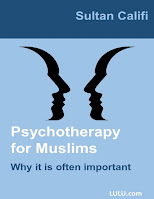The term "Islamparadox" seems to stand for topics that don´t seem to be discussed within Muslim communities, even though they obviously should be discussed.
It first appeared in reviews of V. Rationi´s German book "Das Religionsparadox" (The paradox of religions), where she examined where highly religious countries rank on the "Global Peace Index".
Astonishingly the secular countries rank higher in peacefulness than most of the religious countries.
But there seem to be a lot of other statistical data that raise questions about Islam, eg.: does Islam make people happy (World Happiness Report), does it lead to social progress (Social Progress Index), and why is violence against children so widespread in Islamic countries (and: does it lead to the psychological phenomenon of "authoritarian characters" / "authoritarian personalities")?
